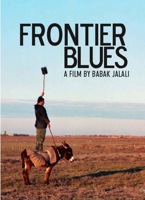Difference between revisions of "Frontier"
From Nordan Symposia
Jump to navigationJump to searchm (Text replacement - "http://nordan.daynal.org" to "https://nordan.daynal.org") |
|||
| Line 2: | Line 2: | ||
==Origin== | ==Origin== | ||
| − | [ | + | [https://nordan.daynal.org/wiki/index.php?title=English#ca._1100-1500_.09THE_MIDDLE_ENGLISH_PERIOD Middle English] fronter, from Anglo-French frountere, fronter, from front |
*[http://en.wikipedia.org/wiki/15th_century 15th Century] | *[http://en.wikipedia.org/wiki/15th_century 15th Century] | ||
==Definitions== | ==Definitions== | ||
Revision as of 22:30, 12 December 2020
Origin
Middle English fronter, from Anglo-French frountere, fronter, from front
Definitions
- 1a : a border between two countries
- b obsolete : a stronghold on a frontier
- 2a : a region that forms the margin of settled or developed territory
- b : the farthermost limits of knowledge or achievement in a particular subject
- c : a line of division between different or opposed things <the frontiers separating science and the humanities — R. W. Clark>
- d : a new field for exploitative or developmental activity
Description
A frontier is a political and geographical term referring to areas near or beyond a boundary. 'Frontier' was borrowed into English from French in the 15th century, with the meaning "borderland"--the region of a country that fronts on another country (see also marches).
The use of "frontier" to mean "a region at the edge of a settled area" is a special North American development. (Compare the Australian "outback".)
